‘Freeways Without Futures’ national report shines spotlight on the North Loop

National study reports North Loop (I-35/70) as one of the 15 worst urban highways in U.S. cities
Removal of North Loop offers a path to community revitalization and greater economic development
Washington, D.C. – The North Loop (I-35/70) is part of a new national report by the Congress for the New Urbanism (CNU) that urges the wholesale transformation of 15 of America’s worst city highways to reknit communities disrupted by highway construction decades ago and generate new economic opportunities.
The highways featured in the report for too long have served as a barrier between neighborhoods and polluted nearby communities, more often than not communities that are home to Black and brown Americans. Now, with these highways reaching the end of their designed lifespan, it is time to repair the damage and channel the benefits unlocked by taking them down to serve the members of the current community.
The 2021 edition of the biennial Freeways Without Futures 2021 report, issued on June 1, highlights local studies regarding removal of the North Loop, along with similar campaigns nationwide, calling on cities and state departments of transportation to replace urban highways with streets and amenities more suitable for an urban setting. With cities, citizens, and transportation officials all looking for alternatives to costly highway repair and expansion, these 15 campaigns offer a roadmap to better equity, opportunity, health, and connectivity in every neighborhood, while reversing decades of decline and disinvestment.
In Kansas City, the local study is led by the Downtown Council in partnership with the City of Kansas City, and leading civic organizations that are working in unison to create the Imagine Downtown KC 2030 Strategic Plan.
The Imagine Downtown KC plan – set to be released this summer – will serve as the primary vision-setting and policy blueprint to lead the ongoing revitalization of Downtown Kansas City. The future of the North and South Loops are envisioned in the strategic plan as “Loop Reimagination,” one of seven catalytic projects designed to transform the future of Downtown KC.
Reimagining the I-169/ I-70/I-670 corridors (i.e., the North and South loops and the related vision for Highway 9,) is considered one of the most important projects to reimagine and reposition Downtown economically for the next 50 years. Removing or minimizing these barriers presents opportunities to improve vehicular, pedestrian, bicycle, and transit connections, as well as provide cohesive visual connections to the River Market and the Crossroads Arts District. Both projects unlock land for development by mitigating, condensing, lidding, or removing the interstates.
The latest Freeways Without Futures report—the seventh in the series since 2008—comes at a time when more American communities are considering or undertaking highway removal. The Biden administration is pursuing a federal highway removal program as part of the American Jobs Act that, if passed, considers for the first time the social and economic ramifications of highway infrastructure and both acknowledges and repairs the damage that federal infrastructure projects have caused.
“As a key part of America’s reckoning with institutional racism, there is an urgent need to heal the raw wounds created by the bulldozers that cleared the way for urban freeways,” said Rick Cole, CNU’s new Executive Director. “In my hometown of Pasadena, the recent success of the sixty year battle to stop the extension of the 710 Freeway opens the way to restore 67 acres to the heart of our city to build affordable housing as part of righting past wrongs and creating future community value.”
Across the U.S., 18 cities – including the North Loop in Downtown KC – have committed to replacing or mitigating major freeways since the late 1980s, including cities like San Francisco, Milwaukee, and New York, which fully removed highways successfully with no adverse impact on traffic. The 15 highways in this report represent the next generation of these projects:
A jury of nationally recognized transportation experts chose this year’s list from 32 nominated in-city freeways. The panel reviewed each submission based on a number of criteria: the age and state of the highway, the quality of alternative boulevard or street design, the feasibility of removal, community support for removal, existing political momentum, redevelopment opportunities, potential cost savings, and potential to improve access to opportunity for underserved communities.
Freeways Without Futures portrays the increasing awareness that last century’s transportation infrastructure was built at the expense of communities of color and an increasing commitment to right these historical wrongs. Now, in more places from coast to coast, the question is no longer whether to replace, but when and how to remove, transform, and repair.
—
Members of the CNU help create vibrant and walkable cities, towns, and neighborhoods where people have diverse choices for how they live, work, shop, and get around. People want to live in well-designed places that are unique and authentic. CNU’s mission is to help people build those places.

